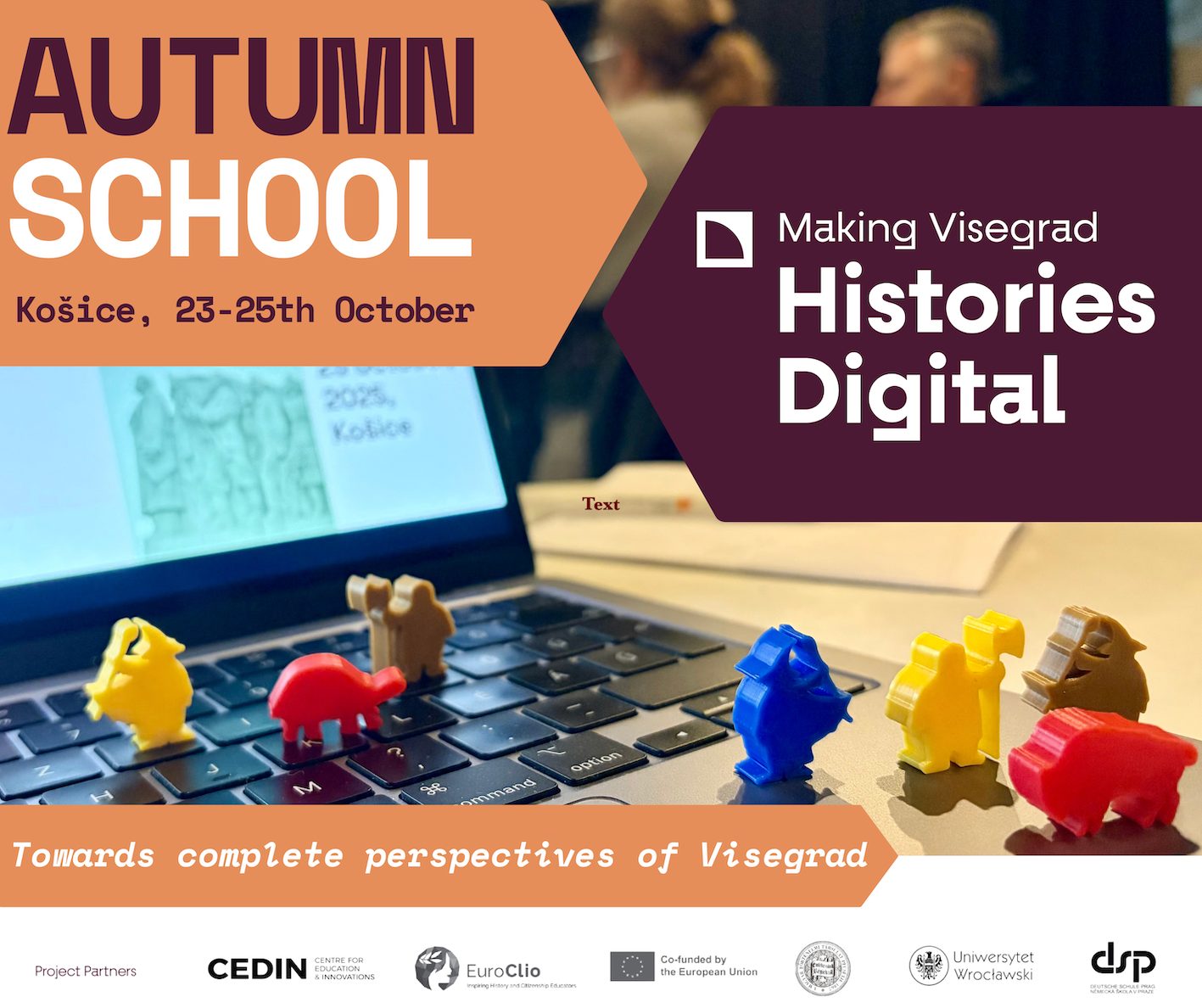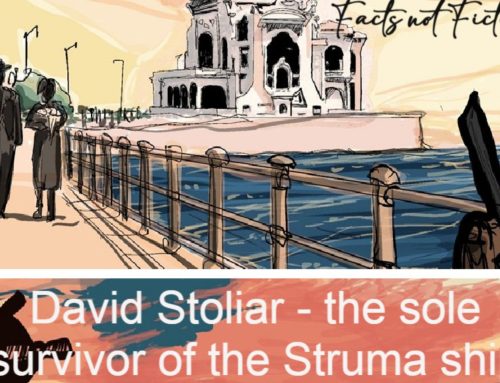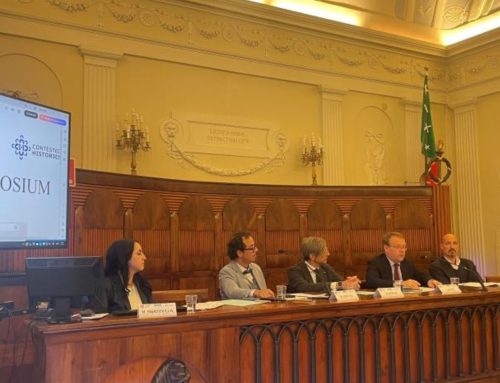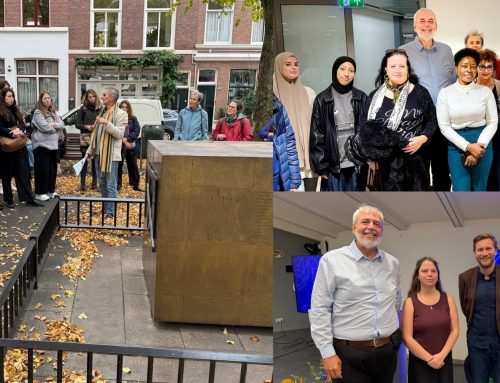The Making Visegrad Histories Digital project held its final event from the 23rd to the 25th of October 2025. The two-year project aimed to bring history education across Europe closer together by inviting teachers from numerous countries to join workshops. The conference was held in Košice and featured many interesting workshops and podium discussions that aimed to present the modules creatively. Teachers from all around Europe were present to enhance their knowledge and bring newly acquired knowledge back home to their students.
The EuroClio Workshop Conference started with Juraj Varga’s opening speech, who is the chief coordinator of the project, and continued with Andreas Holtberget’s introduction to EuroClio’s network, mission, and operational structure. The opening session of the conference was closed by a fascinating panel discussion between Jacek Staniszewski and Vojtech Pipka (both experienced educators and didactic experts), who reflected on the teaching of the history of socialism after the 1990s. During their discussion, which was interactively open to the audience, many pedagogical insights and methodological suggestions emerged.
Three workshops were held later that Thursday, such as What is Nostalgia in the Post-Socialist Context? The workshop concentrated on themes such as reliance, subordination, insecurity, and depoliticised nostalgia and examined shifting meanings of nostalgia, from moral issues to economic and social well-being.
The day ended with an innovative Moving & Learning Session and a networking joint dinner, at which teachers from different countries could share their views and experiences of socialism and how it affected their countries’ history.
Similarly, the second day of the training featured a variety of captivating workshops, including the Environmental History workshop. During the workshop, many countries’ curricula were investigated to determine to what extent the environment is present in them. The workshop host motivated participants to connect global environmental trends to their regions in their teaching, making it more relatable to students.
Afterwards, Juraj Varga presented the Visegrad Hub and opened a discussion about the project’s afterlife. The audience was highly cooperative, and many ideas came along, such as organising more annual events in the future, creating a platform, sharing teaching practices and curriculum, and encouraging exchange between Central European and Western historical narratives.
The day ended with a co-creating session and an interesting tour of the historical city of Košice, which offered insight into the city’s rich culture and its historical region.
The final day started with Balázs Bárány, coordinator of another Central European bilateral initiative. The presenter held an engaging presentation about a Slovak-Hungarian project: Slovak-Hungarian Shared Past: Dispelling Historical Misconceptions, which gave an insight into an interesting international project that aimed to foster a deeper understanding of the shared Slovak–Hungarian past, myths, and disinformation.
The Workshop Conference ended with fascinating workshops, including Richárd Fodor’s and Judit Tóth’s Propaganda and Censorship of Culture under Socialist Rule. During the workshop, participants indulged in different historical perspectives on the themes of propaganda and censorship through games and source analyses.
In conclusion, the Autumn school coorganised by EuroClio, Centre for Education and Innovations (CEDIN), Hungarian Historical Association, and University of Wroclaw in Košice marked a fitting and inspiring end to The Making Visegrad History Digital project. Over three days, participants from across Europe engaged in thought-provoking discussions, creative workshops, and collaborative exchanges that deepened their understanding of post-socialist history and its teaching. The event not only celebrated the achievements of the two-year project (available here) but also laid the foundation for future cooperation among educators who share a commitment to innovative, inclusive, and critical history education. As the conference closed, it was clear that the ideas, partnerships, and enthusiasm generated in Košice would continue to shape how Europe’s complex past is taught to future generations.
Written by Benedek Alpár, Hungarian Historical Society, Pázmány Péter Catholic University













